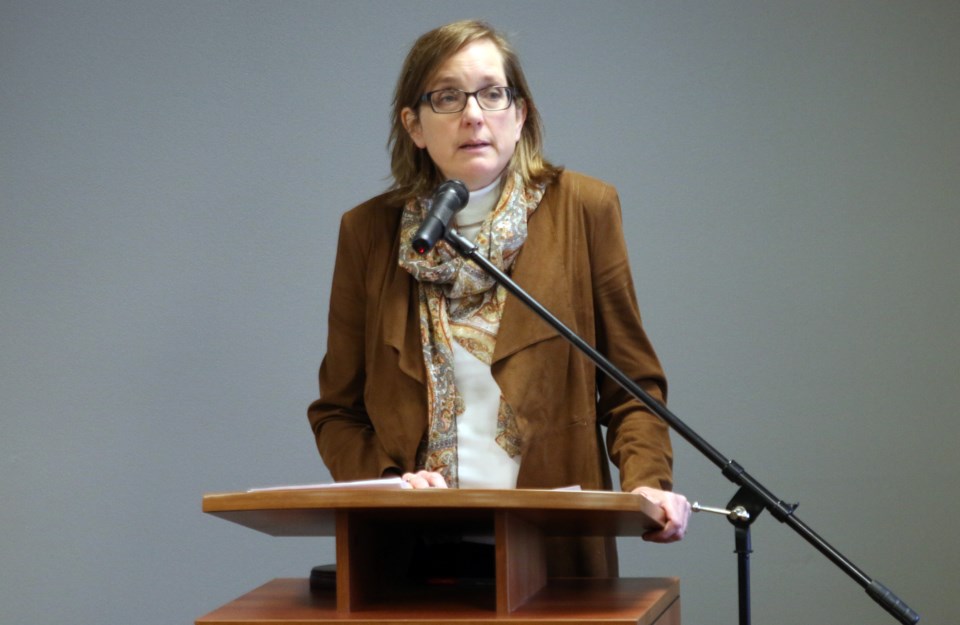THUNDER BAY – “These are not normal times,” says Janet DeMille, the medical officer of health at the Thunder Bay District Health Unit.
In a video address to the community posted Sunday night, DeMille said the COVID-19 outbreak is a serious situation and the public all needs to pay attention and take appropriate actions to prevent the spread of the disease in Thunder Bay and surrounding communities.
“We all need to collectively take measures that will reduce the impact of the virus here in Thunder Bay, in the Thunder Bay District and beyond,” DeMille said.
She began her address by confirming there have been no confirmed cases of COVID-19 in the area, noting all tests have come back negative.
“Unfortunately, the ability to process and analyze the tests is limited provincially, and even nationally, so we are experiencing a considerable delay in getting the results back. It should be noted though, that people that are getting tested are self-isolating at home,” DeMille said.
“So even if they had COVID-19, they’re likely not spreading the virus, especially in the community.”
However, DeMille warned there is community spread happening elsewhere in Ontario, notably in the Greater Toronto Area.
It’s not surprising and something that experts assumed would happen eventually. DeMille said people living in the Thunder Bay District shouldn’t take the city’s relative isolation as a sign of safety.
“This will only give us a delay in the virus being here and spreading. It won’t stop it,” she said. “Right now we need to act like the virus is here and that it is spreading here. This may be in the early stages of community spread here. However now is the time we need to act, to slow the spread of the virus in our communities.”
The first goal is to identify those with high risk of having the virus and putting in measures to ensure they don’t cause its spread. The second is the above-mentioned flattening the curve, a means to prevent sharp spikes in incidences.
There are significant steps already in place to stem the spread of the disease, most notably social-distancing recommendations. It includes the closing of schools and daycares, bars restaurants and theatres, the cancellation of sports and limitations on gatherings.
“In addition we’ve seen many organizations implement measures to reduce people being able to congregate, or gather together. And while there still may be people coming together, these measures help increase the distance between people.”
DeMille also asked returning travelers from out of country to strictly adhere to self-isolation strategies, to reduce the chances of spreading COVID-19 locally.
“Returning travelers must self-isolate for 14 days upon their return. Self-isolations means staying at home, not going out and limiting your contact and proximity to other people,” she said.
DeMille said friends and family can play a role, offering to pick up groceries or other supplies.
Individually, she encouraged the public to stay home as much as possible and avoid non-essential travel within the community.
“Work from home, if you’re able. Plan ahead for what you might need. For example, plan your meals and your grocery shopping so you don’t have to do this very often,” DeMille said, noting she’s adhering to a once-a-week grocery trip.
